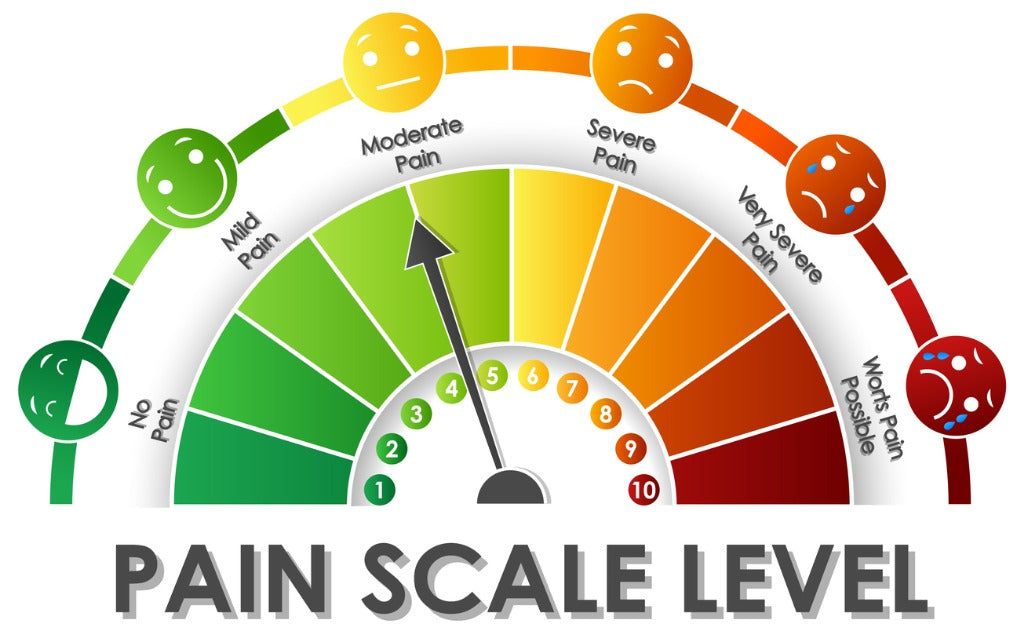Why Passing Gas Is Actually Good For Senior Citizens
Why Passing Gas Is Actually Good For All People, Especially Senior Citizens
We all have noticed that as we get older those "toots" slip out once in a while. This article explores gas and older adults. This is not an investment article; it is a body function story. This post explores what makes us fart, what does it mean and who's doing it. "A Rose By Any Other Name Is Still A Rose." Passing gas goes by many names because every human being, now, in the past, and in the future, passes gas. It is a vital part of this wonderful machine called the human body.
A Rose By Any Other Name Is Still A Rose
- Air biscuit
- Air tulip
- Anal audio
- Anal exhale
- Anal salute
- Anus applause
- Answering the call of the wild burrito
- Ass acoustics
- Ass flapper
- Back draft
- Back-end blowout
- Back blast
- Baking brownies
- Barking spider
- Barn burner
- Beep your horn
- Belching clown
- Benchwarmer
- Blast
- Blurp
- Blurt
- Bomber
- Boom-boom
- Booty bomb
- Booty cough
- Bottom blast
- Bottom burp
- Booty belch
- Break wind
- Brown cloud
- Brown haze
- Brown thunder
- Bubbler
- Bull snort
- Burner
- Burp out the wrong end
- Bust ass
- Butt bazooka
- Butt bongos
- Butt putt
- Butt sneeze
- Butt trumpet
- Butt tuba
- Butt yodeling
- Cheek squeak
- Cornhole clap
- Cornhole tremor
- Crack concert
- Crack splitters
- Crap call
- Cut one
- Cut the cheese
- Drifter
- Droppin' stink bombs
- Duck call
- Exercise the meat nozzle
- Exhume the dinner corpse
- Fanny beep
- Fanny frog
- Fecal fume
- Fire in the hole
- Fizzler
- Flatus
- Floater
- Fluffy
- Free speech
- Frump
- Gas
- Get out and walk Donald
- Great brown cloud
- Gurgler
- Heinie hiccup
- Hisser
- Honker
- Hot wind
- Hottie
- Insane in the methane
- Lay an egg
- Let Polly out of jail
- Mouse on a motorcycle
- Nasty cough
- O-ring oboe
- One-man salute
- Pants cannon blast
- Poof
- Poop gopher
- Pop tart
- Power puff
- Puffer
- Quack
- Quaker
- Raspberry
- Rattler
- Ripass
- Ripper
- Roar from the rear
- Rump ripper
- Rump roar
- Silly cyanide
- Slider
- Sphincter siren
- Sphincter whistle
- Spitter
- Split the seam
- Steamer
- Step on a duck
- Step on a frog
- Stink it up
- Stinker
- Stinky
- Taint tickle
- Testing in the Levi wind tunnel
- Thunder from down under
- Thurp
- Trouser cough
- Trouser trumpet
- Trunk bunk
- Turd tremors
- Turtle burp
- Tushy tickler
- Under thunder
- Wallop
- Whiff
- Whoopee
- Whopper
Understanding The Science Behind Flatulence
Understanding the science behind flatulence reveals that passing gas is a natural and essential bodily function, especially for senior citizens. As people age, changes in digestion can lead to an accumulation of gas in the intestines. This buildup is often a result of slower digestive processes and dietary shifts that are common among older adults. Foods rich in fiber, such as fruits, vegetables, and whole grains, while beneficial for health, can also contribute to increased gas production.
Flatulence occurs when the body expels excess air swallowed during eating or drinking and gases produced by intestinal bacteria during digestion. The presence of these gases can be indicative of a healthy gut microbiome—an essential aspect of overall health. For seniors, regular flatulence may signal that their digestive system is working properly to break down food.

Moreover, passing gas can relieve discomfort associated with bloating and abdominal pressure. While it may be considered socially awkward or embarrassing, it serves as a vital reminder that the body is functioning normally. Embracing this natural process can help seniors maintain comfort and wellbeing as they navigate changes in their digestive health over time.
The Importance Of Natural Bodily Functions For Senior Citizens

Natural bodily functions, including the release of gas, play a crucial role in maintaining overall health and well-being for senior citizens. As we age, our digestive systems undergo various changes that can affect how we process food. The production and expulsion of gas are normal physiological processes that indicate the body is functioning properly and effectively breaking down nutrients.
For seniors, passing gas can serve as a sign of healthy gut flora and proper digestion. When these natural processes are inhibited—due to dietary changes, medication side effects, or reduced physical activity—bloating and discomfort can occur, leading to decreased quality of life. Encouraging open conversations about such natural bodily functions helps to normalize them and reduces any associated stigma.
Moreover, fostering an understanding of these functions promotes awareness about dietary choices that support digestive health. Foods high in fiber can help regulate bowel movements and reduce gastrointestinal discomfort. Ultimately, embracing the importance of natural bodily functions allows seniors to maintain dignity while prioritizing their health, ensuring they remain active participants in their daily lives without unnecessary embarrassment or discomfort.
Health Benefits Of Passing Gas For Elderly Individuals
Passing gas, often regarded as a socially awkward occurrence, holds several health benefits, particularly for senior citizens. As individuals age, their digestive systems may become less efficient due to factors such as decreased enzyme production and changes in gut flora. In this context, the release of gas serves as a natural indicator that the body is processing food and eliminating waste effectively.
One significant benefit of passing gas is relief from bloating and discomfort. Seniors are more prone to gastrointestinal issues like constipation and indigestion, which can lead to excessive gas buildup. By expelling this gas, they alleviate pressure in the abdomen, leading to greater comfort and improved mobility.
Additionally, regular gas passage can indicate a balanced diet rich in fiber. Dietary fiber promotes healthy digestion by facilitating bowel movements and supporting beneficial gut bacteria. This connection suggests that when seniors pass gas regularly, it may reflect a diet that nurtures their overall digestive health.
In summary, while often viewed with embarrassment or disdain, passing gas plays an essential role in maintaining digestive wellness for senior citizens, ensuring their comfort and promoting healthier eating habits.
How Flatulence Can Help Alleviate Digestive Issues In Seniors
Flatulence, often regarded as an embarrassing bodily function, can actually serve as a beneficial indicator of digestive health for senior citizens. As the body ages, the digestive system may face various challenges, including slower metabolism and decreased enzyme production. These changes can lead to discomfort, bloating, and irregular bowel movements. In this context, passing gas becomes a natural mechanism for alleviating digestive issues.
When seniors experience flatulence, it signals that their gastrointestinal tract is processing food and breaking down gases produced during digestion. This process can help relieve pressure in the abdomen and reduce feelings of fullness or discomfort. Moreover, the expulsion of gas can indicate a balance between fiber intake and gut bacteria activity—an essential aspect of maintaining digestive health.
Encouraging seniors to embrace this natural function can also foster open discussions about digestive concerns with healthcare providers. By understanding that passing gas is a normal part of digestion rather than something to be ashamed of, seniors may feel more empowered to address potential dietary adjustments or seek medical advice when necessary. Ultimately, recognizing flatulence as a sign of healthy digestion allows for greater comfort and well-being in daily life.
Breaking The Stigma: Normalizing Flatulence In Older Adults
Breaking the stigma surrounding flatulence in older adults is crucial for fostering a more supportive and understanding environment. For many, the act of passing gas can evoke feelings of embarrassment or shame, especially among seniors who may have been raised in eras where such bodily functions were considered taboo. However, it’s essential to recognize that flatulence is a natural biological process that plays an important role in digestive health.
By normalizing conversations about flatulence, we can help dismantle the stigma that often leaves seniors feeling isolated or anxious about their bodies. Open discussions can encourage older adults to share their experiences without fear of judgment, promoting better communication with caregivers and healthcare providers. Furthermore, acknowledging that flatulence is common and often harmless allows seniors to approach their digestive health with greater confidence.
Creating an environment where passing gas is accepted as a normal part of aging not only enhances individual well-being but also fosters community connections. When we embrace this aspect of human biology, we empower senior citizens to live more freely, reducing anxiety around bodily functions while enhancing their overall quality of life.
Improving Gut Health Through Regular Gas Release
Passing gas is often viewed as an embarrassing bodily function, especially among senior citizens. However, it plays a vital role in promoting gut health. As we age, our digestive systems undergo various changes that can lead to discomfort and health issues. Regular gas release indicates that the gut is functioning properly and efficiently breaking down food.
When food is digested, it produces gases as byproducts. These gases are a natural result of the fermentation process carried out by beneficial bacteria in the intestines. A healthy balance of these bacteria helps prevent issues such as constipation and bloating, which are common complaints among older adults. By allowing for regular gas release, seniors can alleviate pressure and discomfort in their digestive tracts.
Moreover, passing gas can serve as an indicator of dietary habits and gut flora diversity. A varied diet rich in fiber not only promotes regular bowel movements but also encourages the growth of healthy bacteria that contribute to overall gut health. Thus, embracing this natural bodily function can enhance comfort and well-being while fostering a healthier digestive environment for senior citizens.
Research Studies Supporting The Positive Effects Of Passing Gas In Seniors
Research studies have increasingly highlighted the positive effects of passing gas, particularly in senior citizens. A notable study published in the "Journal of Gastroenterology" revealed that regular flatulence can indicate a healthy digestive system. For seniors, whose gastrointestinal health may decline with age, the ability to pass gas serves as a crucial signal of proper digestion and gut function.
Moreover, a research project conducted by the American Geriatrics Society found that the act of releasing gas can alleviate discomfort caused by bloating and constipation, conditions commonly experienced by older adults. This relief not only enhances physical comfort but also contributes to improved emotional well-being, reducing anxiety related to digestive issues.
Additionally, studies have shown that social interactions among seniors can be positively influenced by normalizing bodily functions like passing gas. When seniors feel comfortable discussing such topics within their peer groups, it fosters a sense of community and reduces feelings of isolation. Thus, understanding that passing gas is a natural biological process reinforces its importance in promoting both physical health and social connections among senior citizens.
Tips For Encouraging Healthy Digestion And Flatulence In Aging Individuals
Encouraging healthy digestion and flatulence in senior citizens involves a holistic approach that integrates dietary choices, physical activity, and mindful habits. First and foremost, a fiber-rich diet is essential. Foods such as whole grains, fruits, vegetables, and legumes can enhance bowel regularity and promote the production of gas by supporting beneficial gut bacteria. Hydration also plays a crucial role; drinking plenty of water helps to keep the digestive system running smoothly.
Incorporating regular physical activity is another vital component. Gentle exercises like walking or stretching can stimulate digestion and encourage the passage of gas through the intestines. Establishing a routine around mealtimes can also aid digestion; eating smaller meals more frequently may help avoid discomfort associated with large portions.
Mindful eating practices are equally important. Encouraging seniors to eat slowly and chew their food thoroughly not only enhances enjoyment but also aids in digestion by breaking down food more effectively. Lastly, fostering an open environment where discussing bodily functions feels comfortable can alleviate any embarrassment related to passing gas, reinforcing that it is a natural part of health for all ages.





